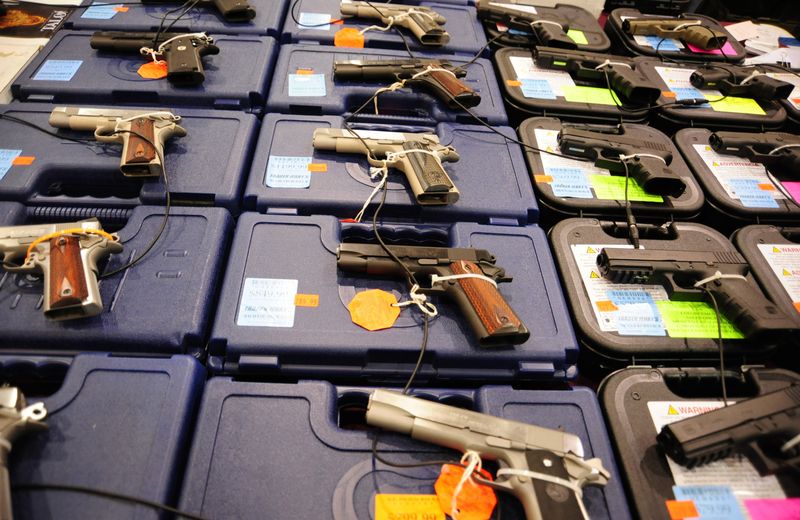The permissiveness of US gun laws is not just a domestic problem. Judging from a new study of internet gun sales, it’s also making the country a source of illicit weapons in Europe.
Following reports that guns for the 2016 Munich shootings and the 2015 Paris terror attacks were purchased on the vast, hidden part of the internet known as the dark web, the Rand Corporation received a commission for the first empirical study of the illegal online weapons trade. Led by Giacomo Persi Paoli, who had previously studied small arms trafficking for the United Nations, the Rand team spent a week in September 2016 observing the activity of 52 unique arms vendors operating on 15 online markets.
The results are troubling. Although weapons sales were marginal compared with drugs, they were significant and offered “both a wider range and better quality firearms than what is normally accessible on the streets.” The researchers estimate that some $80,000 worth of guns, gun parts, ammunition, explosives and digital products such as files for the 3D-printing of guns is sold every month in just the part of the market that they managed to observe. Most of the revenue comes from pistols. At an average price of $1,189 for a Glock, that’s hundreds of illegal guns a year.
Perhaps most interesting is the direction of trade. Sellers were located primarily in the US, with its vast legal arms market and well-developed cryptomarkets. And while delivery destinations were hard to pin down, the researchers concluded that “Europe appears to be a key recipient.” This is plausible in part because of the profits to be made by targeting customers across the Atlantic: In the US, a new Glock retails for $459, so the markup can exceed 100 percent. That makes shipping worth the trouble (though it’s worth noting that the Munich and Paris shootings were traced to European sellers).
The dark web has a lot of advantages for European buyers. The risk of being scammed or caught in a sting operation is high, but it’s no lower on the street. Cryptomarkets are easier to find than offline illegal arms dealers. Most transactions result in a customer review of the vendor, so it’s also easier to locate relatively — though never perfectly — trustworthy sellers. In Europe, with its strict gun laws, a street deal can be more dangerous than picking up a parcel with parts hidden in a power tool or a computer case, or several packages with bits of a disassembled gun.
Europeans broadly support tough rules against gun ownership. Although it’s not clear that fewer guns means less violent crime, plenty of studies show a positive correlation. European countries that forbid their citizens to carry weapons boast lower crime rates than the US.
The Rand report demonstrates how Europe’s rules can be circumvented if guns are legal in any country with a good internet and postal infrastructure. Anyone with a computer and a little determination can take part in the intercontinental arms trade. This means that tighter gun controls in the US, and specifically laws limiting how many a person can buy in a certain period, could cut the spillover to countries where the black market is hungry for weapons and sellers can command large premiums.
Unfortunately, even those US states that limit sales — California, New Jersey, Maryland — allow one per month. That’s far more than anyone needs for self-protection, and enough to earn a handsome additional income by shipping guns to Europe.
(Bloomberg)
